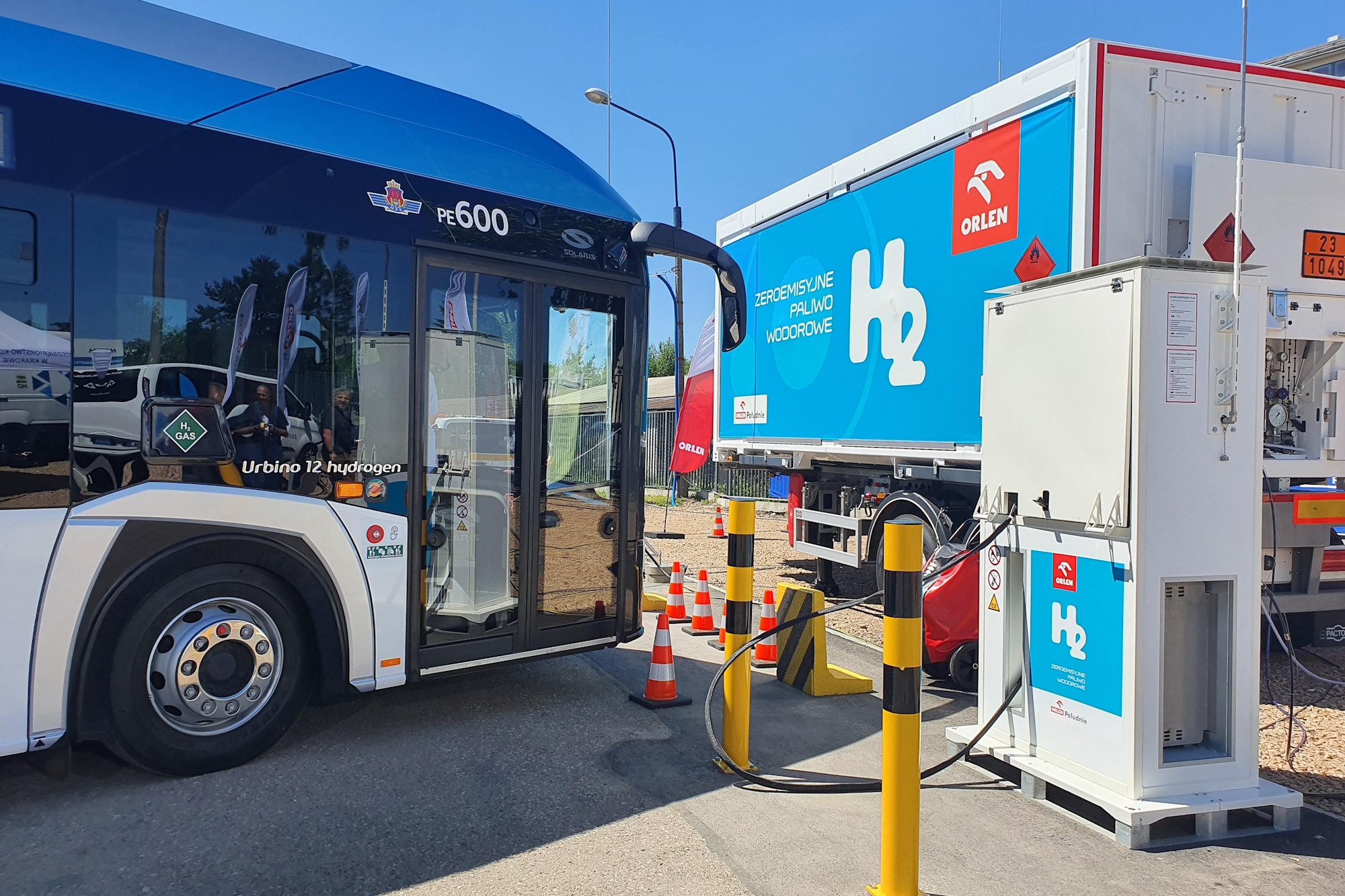The Polish giant is focusing on new mobility

- Orlen has long ceased to be just a fuel company
- The company is also focusing on developing fuel offerings to users of alternatively powered cars.
- In the investment plan of PLN 320 billion, approximately PLN 120 billion is allocated to so-called green investments
Almost every Pole has probably heard of Orlen . It is the largest corporation in Central and Eastern Europe and the largest Polish company in the Fortune 500 Global and Europe rankings . It employs a total of nearly 65 thousand people in all of its capital group entities.
Orlen has fuel stations not only in Poland, but also in six other countries in the region - in Germany, the Czech Republic, Austria, Slovakia, Hungary and Lithuania . It is the largest operator of fuel stations in the region (over 3,400 in total). However, it operates not only in the market of supplying fuels that can be described as traditional.
Orlen focuses on electromobility in its new strategyThe company is also focusing on developing fuel offerings to users of cars with alternative drives.
Orlen Charge is a network of chargers that has around 1,100 charging points in Poland. By 2035, the company wants to be responsible for 33% of the energy powering electric cars , which should translate into around 6,000 charging points in the country.
It is not only in Poland that you can charge an electric car with equipment with the Orlen logo. There are already 60 stations in Germany, and the network is planned to expand to over 200 by the end of 2025, and to around 460 by 2026. As part of the cooperation between Orlen Deutschland and May & Co. Holding, Orlen Charge chargers will appear in locations most desirable for electric car users. The devices will be available, among others, in retail parks and supermarkets of popular chains, which will allow customers to use ORLEN Charge chargers while shopping. As part of the agreement, the concern will install over 200 high-power charging points, from 150 to 400 kW.
In Poland - according to the declaration from 2024 - by the end of this year, 13 charging hubs (i.e. large clusters of high-power chargers) will also be created. By 2027, there are to be over 50 such hubs throughout Poland, mainly on motorways and expressways. Plans also include increasing the presence in city centers and at petrol stations, with the possibility of charging every 5 km.
Multi-energy corporation with billions for transformationOrlen no longer wants to be just a fuel concern - it is currently implementing a transformation strategy into a sustainable multi-energy concern.
In the investment plan amounting to PLN 320 billion, approximately PLN 120 billion is allocated to so-called green investments.
This means that the company develops offshore and onshore wind farms, photovoltaics, biogas, biomethane, the production of next-generation biofuels and invests in renewable hydrogen.
Orlen also focuses on hydrogen in its businessOrlen does not limit itself to supporting battery motorization, it is also a very important player in the hydrogen refueling market, still not very popular in Poland among private customers, but increasingly noticed by local governments looking for new, zero-emission public transport vehicles. The ambitions are big
In June 2024, Orlen launched the first publicly available 24/7 hydrogen station in Poland in Poznań , where it regularly refuels, among others, 25 city buses. It was later joined by a station in Katowice. In Kraków, Orlen operates a mobile hydrogen refueling station, which supplies public transport buses with this fuel at the depot.
The company plans to open stations in Wałbrzych, Włocławek, Gdynia, Piła and Płock in 2025. In addition, Orlen continues to build hydrogen stations in cities such as Bielsko-Biała, Gorzów Wielkopolski, Kraków and Warsaw.
Ultimately, by 2030, Orlen plans to have over 100 hydrogen stations in Poland, the Czech Republic and Slovakia.
The construction of the Poznań station was co-financed from EU funds (under the CEF - Connecting Europe Facility) and national funds (from the "Green Public Transport" program). In 2024, the company received approval from the European Commission for a subsidy for the construction of 16 hydrogen refueling stations and a production hub in Szczecin, for the amount of EUR 62 million.
Orlen is also a beneficiary of the EU Clean Cities – Hydrogen Mobility in Poland program . It will receive funding in two rounds. Further plans for hydrogen station locations include the construction of stations in Wrocław (two facilities), Zielona Góra, Przeźmierowo, Szczecin, Gdańsk, Gdynia, Gliwice, Kraków, Koszwały, Poznań and Łąka.
In total, the company plans to spend at least EUR 150 million in the coming years on building infrastructure for the production and distribution of green automotive-quality hydrogen, i.e. the kind that powers cars.

The future network of hydrogen hubs is to be powered by renewable energy sources and installations processing municipal waste into zero- and low-emission hydrogen. The assumed capacity of electrolysers in the Orlen Group by 2030 will be around 1 GW, which, combined with waste-to-hydrogen projects, will enable the production of over 130 thousand tons of hydrogen per year.
Orlen is also developing a logistics network for hydrogen deliveries to refueling stations, based on battery tankers - tankers like for conventional fuel, but adapted to transport hydrogen under high pressure. The company launched its first hydrogen hub in Trzebinia in 2021. Another one started production in Włocławek. The third, in Szczecin, is at the stage of preparations for construction.
In mid-May this year, the Orlen VC fund invested in Hystar, a company that manufactures PEM electrolysers for the mass production of zero-emission hydrogen with membranes 10 times thinner than in standard electrolysers (patented solution), which significantly increases efficiency and reduces costs.
wnp.pl





